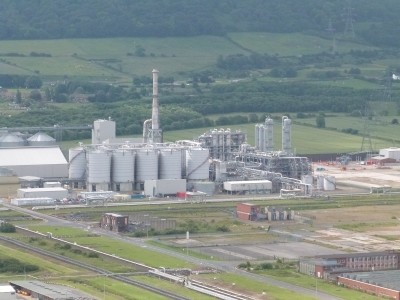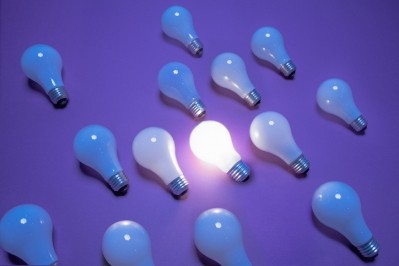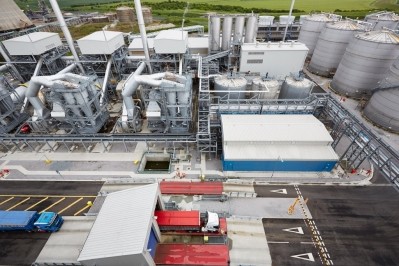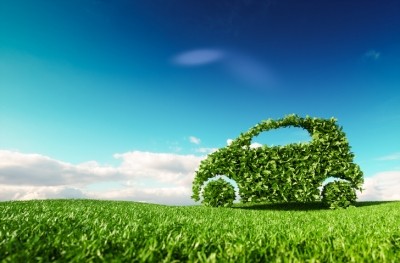Economist: E10 is a compelling partial solution to Ireland’s transport targets and protein supply
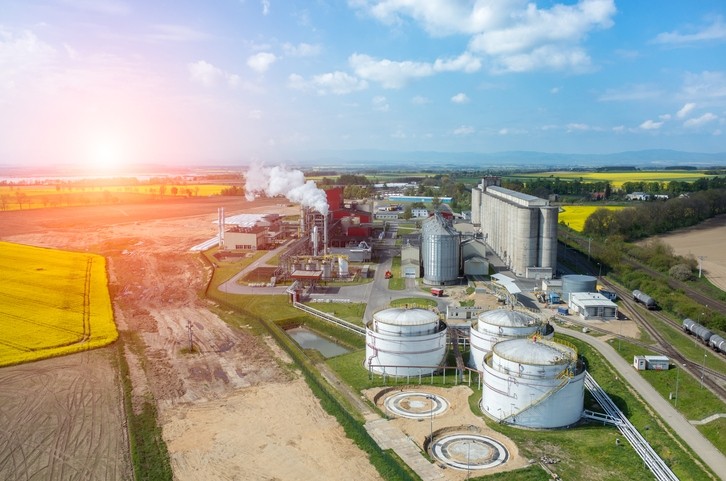
Ireland currently has 5% ethanol (E5) in its petrol, which was introduced without any adverse effects in 2005.
The study, which was published last week, was produced by Irish economist, Jim Power, for Ethanol Europe, an Irish owned but Hungary based producer of renewable energy and animal nutrition.
“Ethanol Europe did not commission the report because it wanted to sell ethanol into Ireland. The Irish market is too small and too far from where it operates, at a facility south of Budapest. It wanted to raise awareness around Europe about the benefits of E10,” Power told us.
Ethanol provides a very compelling partial solution to Ireland’s transport targets, he said. E10 would further reduce the country's dependence on volatile global oil markets, so it is difficult to understand why such a blend is not being introduced into the Irish market, said Power.
Transport is Ireland’s biggest emitter of fossil carbon and these emissions are growing. Ireland’s progress towards its 2020 transport decarbonization goal is effectively stalled. To move towards a zero-carbon position, which includes the long-term transition to electric cars, it is essential the country takes steps that will make an immediate difference, he added.
Weighing in on that, James Cogan, Dublin-based industry and policy analyst, Ethanol Europe, said that most of what has been achieved to date in terms of transport decarbonization in Ireland has been limited, and it has been done via imported double counted used cooking oil (UCO), much of it of dubious origin:
“So even the climate action progress we are making is of poor quality.”
Potential for ethanol production in Ireland
Ireland gets its supplies of ethanol for its E5 blend from France, and from the UK, when suppliers in that market are producing at full capacity.
While Ireland would continue to rely on ethanol imports for the introduction of E10, a domestic ethanol production sector would also provide a source of income for Irish farmers, said Power.
No Irish farmers are producing biofuels at present.
The possibility of having an ethanol industry in Ireland has been raised over the past few years, with a number of reasons being cited, one being climate change and the fact that ethanol use has proved to have had an impact on carbon emissions in the transport fleet, said Power.
“The second argument is that Irish farming is heavily dependent on beef production. The beef industry here is under serious pressure from a variety of factors including Brexit, changing consumer habits, and environmental issues, among others… and beef prices are collapsing. Looking to the future, that sector is going to be challenged. Ethanol provides an opportunity for diversification,” he said.
Cogan said one feedstock route to domestic ethanol production in Ireland would be sugar beet; however that industry would need to be restarted, a move definitely on the back-burner for now. “Wheat based ethanol plants in Ireland would have to be big to be viable. However, we believe that they could become viable, as the country has lots of pent-up tillage capacity,” he said.
Domestic feed protein source
Relying on wheat, corn or sugar beet as feedstocks, the EU ethanol sector co-produced 5.71m tons of co-products in 2017, of which 4.32m tons were high-protein, non-GMO DDGS for animal feed, according to ePure statistics.
So, along with creating farm diversification, domestic ethanol production would provide feedstuffs, that, in turn, would go some way towards alleviating Ireland’s dependence on imported protein for feed, said Power.
“There is definitely an opportunity for import substitution, but it would still be challenging [to set up an ethanol sector in Ireland]. I would hope that we could do so, and I think, from an environmental perspective, it makes more sense to subsidize that [an ethanol sector], than to subsidize beef farming.
"It would be just a small step, not a silver bullet - biogas production is another way to go for Irish farmers in terms of diversification routes – but there are lots of positive reasons as to why it would be desirable for Ireland to try and create an ethanol industry here," commented Power.
That aspect though was not the main gist of his paper: “The key point I was making, in the report, was that by embracing E10, Ireland would, at least, go some way towards alleviating its carbon problem from transport as we are making abysmal progress. From 2020 onwards, we face the spectre of EU fines if we don’t meet our [carbon reduction] targets.”
He said the Irish government would seem, in theory, to be favorably disposed to the idea of introduction of E10: “In its climate action plan, it mentioned E10 as a route it is going to follow eventually, but I think there is a five to seven-year timeline placed on that. I would argue it should be implemented as quickly as possible.”
E10 take-up in Europe
E10 petrol is the dominant petrol brand in France, it is also in use at the pumps in Finland, Germany, Belgium, and Luxembourg.
“The Netherlands is going to E10 this autumn, and the Central and the Eastern European countries, like the Czech Republic, Slovakia, Romania and Hungary, are murmuring about it very busily. If we were betting people, we would bet, that by the end of the year, they will have announced it,” said Cogan.
He has been doing the rounds in Ireland, engaging a raft of stakeholders concerned about the subject of E10 introduction. “Everybody is saying they want E10. When you ask why it isn’t being done, you get blank responses.”
The only people who would have to make changes, who would have to adapt their production are the fuel importers, he said. “They would have to blend more ethanol into their petrol and change their logistics slightly. The importers say: ‘Why would we do it? No one has asked us to do it. If somebody asks us to do it, we will do it.’”
The UK market
If Ireland goes to E10 ahead of the UK, it nullifies the argument in the UK for not doing it, said Cogan.
Three plants in the UK – Vivergo Fuels (Humberside), Ensus (Wilton on Teesside) and British Sugar (Norfolk) - have the combined capacity to produce 890 million liters of the renewable fuel. Vivergo and Ensus use feed wheat as the raw material, generating DDGS as a co-product. However, Vivergo has now ceased production and Ensus is only producing on a reduced scale to meet local customer requirements.
The All-Party Parliamentary Group (APPG) for British Bioethanol published a report on the future of the UK ethanol production sector last month.
“Without a step change in UK demand driven by the swift introduction of E10 in the UK, it is difficult to reasonably assume all three plants operating continuously again or at full capacity, and for the current collapse in production and investor confidence to be reversed,” it noted.
The UK government consulted on E10 last year, not a full consultation, it was more a call for evidence, said Grant Pearson, commercial director, Ensus. “At this stage, we are awaiting a further consultation from the government. We do not have confirmation at this point that they are going to bring it in. They have just talked about it as a possibility.”
There is a good demand for locally produced proteins, he said. “The UK imports around about 2m tons of proteins every single year, so it has a significant deficit. When Ensus is running [at full capacity] and Vivergo is running, we make a big contribution to ensuring we don’t need to import all of that, we can get [proteins] from locally produced material.”
Echoing Power, he said that having a UK industry that takes surplus UK feed wheat is good news for arable farmers:
"It gives them confidence that there is going to be local demand, which allows them to forward plan, both in terms of the growing of their feed wheat, but also in terms of their crop rotations. Having a local feed supply of animal protein also allows compounders to manage their rations effectively. So, I think having these facilities up and running is good news for UK agriculture, and, in a Brexit scenario, that is even more important.”
“We need to have strong demand, and that is where the introduction of E10 in the UK is critical. Another issue that is important for us is ensuring that tariffs are maintained if we have a no-deal Brexit," he added.
EU ethanol production is 'fragmented'
In terms of the sustainability aspect of EU ethanol production, Cogan pressed home that it a highly transparent sector: “What you see is what you get. It is very measurable, it can be traced back to the farm. There are also very sophisticated life cycle calculations done to determine what the carbon saving of ethanol production is compared to petrol so it is something that can give people, to a reasonable degree, peace of mind.”
Biofuels in Europe account for somewhere in the order of a couple of percent of tillage output in Europe, he said. “So, it is pretty small. Tillage output in Europe increases a couple of percent per year, so the entire biofuels capacity of Europe is equivalent to one normal year’s increase in tillage output."
It is a fragmented sector as well, production is dispersed, he said. “So, it is not as if there is just one region in Europe producing all the biofuels. We [as Ethanol Europe] produce in Hungary, [where there is a law restricting the size of farm holdings] on the scale of two-family sized farms, so it is anything but intensive farming and yet [that scale] is very effective at producing all the maize we need to be Europe’s biggest ethanol producer.”
Ethanol Europe produces 450m liters of ethanol, 15,000 of corn oil, and 350,000 tons of DDGS, on an annual basis. It ships to international markets, with rail and river infrastructure nearby.
The company competes with DDGS imports from the US, for example, based on its feed product being non-GMO. Interestingly, while, the DDGS market remains an essential part of the model, the company is also gravitating towards high-value feed products and looking to develop ingredients for use on the human nutrition side, said Cogan. “That approach, though, does require specialist technical knowledge.”
